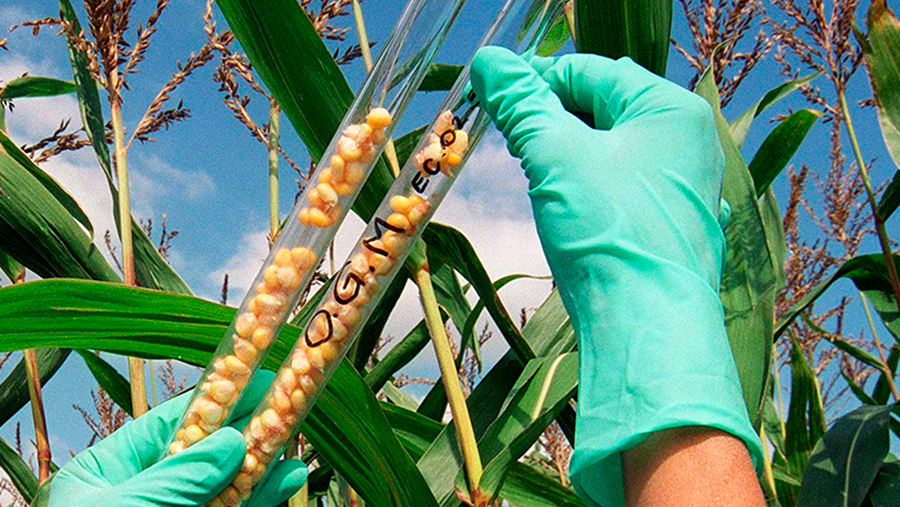GM crops ‘not the answer’ to UK food security
 © Sipa Press/Rex/Shutterstock
© Sipa Press/Rex/Shutterstock Genetically modified (GM) crop technology is not the answer to helping UK farmers produce more food, according to the head of the country’s top crop research facility.
Achim Dobermann, chief executive of Rothamsted Research, said GM technology could be a useful tool in some areas, but growing commercial biotech crops in the UK would not bring huge benefits.
Instead of the farming industry pinning its hopes on GM crops obtaining approval for use in the UK post Brexit, growers should focus on the way they farm to help them drive yields, he said.
See also: Are we kidding ourselves on… GM?
Speaking at the Bayer Youth Ag Summit in Brussels earlier this month, Prof Doberman said there were too many barriers for GM to be accepted and adopted in the UK and across Europe.
The advancement of gene editing – which is a very different thing to GM – will change the whole picture Achim Dobermann, chief executive, Rothamsted Research
Public criticism of the technology was so fierce that it made sense to focus efforts on new technologies that were less controversial and potentially more beneficial to producers, he added.
“I don’t think GM is the major solution for agriculture,” said Prof Dobermann. “Ten years ago, if you spoke to people like me, we would have said that certain challenges require a GM solution.
“But we don’t need that anymore, because we can do it with more advanced breeding technologies. The advancement of gene editing – which is a very different thing to GM – will change the whole picture.”
Prof Dobermann said GM technology was a “useful tool” in an array of answers for the challenge of how to feed the world, particularly with the development of niche crops such as Rothamsted’s GM oilseed plant false flax, which produces fish oils.
But other than making some agronomic practices easier, the technology was not essential to UK growers, he added.
“If you look long and hard at whether you need a commercial GM crop in the UK, except for the odd niche crop, [I would say] probably not,” Prof Dobermann explained.
“We could become leaders in it if we wanted to, as we have invested so much [into research] that could be turned into commercial prospects, but I don’t think it would be viewed as a top priority.
“I’ve realised that despite the good things we can do with genetics, it’s about the business of agriculture. If we don’t know how to grow crops or look after animals then we just can’t get the results that are needed.”
